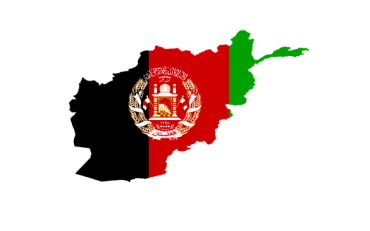The International Disability Alliance (IDA), in solidarity with our members and allies, express our deepest concern about the impact of rapidly unfolding crisis in Afghanistan on persons with disabilities. With our highest voice, we call on the international community, humanitarian actors, and all governments involved to take speedy efficient measures to ensure the protection of lives and dignity of persons with disabilities, in particular women and girls.
Due to communication barriers and security concerns, adequate information on the situation of Afghans with disabilities during the current crisis is not available. It is evident however that due to the unsafe situation, many Afghans have been forced to leave their homes in search of safety and dignity. Persons with disabilities face additional risks during the displacement journey including being left behind in the first place or being forced to withdraw from the journey due to a lack of assistive devices or disruption of support networks. When reaching displacement or refugee camps, or other temporary residence, persons with disabilities face additional barriers accessing the very basic rights such as water, sanitation, hygiene, food or shelter.
Those left behind are at risk of violence and abuse, disruption of support services and isolation. In case the situation turns to internal armed conflict, persons with disabilities are more likely to lose their lives than others, and face risk of being abused as human shields, sexual slaves or trafficking.
We call on all actors providing humanitarian assistance, including emergency relocation, to take all necessary measures to ensure that persons with disabilities can access humanitarian assistance on an equal basis with others. Measures to be adopted may include the following:
- Ensuring that information on how to access humanitarian assistance, including emergency relocation, is provided in accessible formats and through accessible communication means.
- Staff considering such requests are informed of the additional risks persons with disabilities face in emergency situations as well as the support they would need to access humanitarian assistance. In particular, ex-combatants who have acquired an impairment or developed trauma during the conflict with the dominant group face additional risk of violence and losing their lives, and must be prioritized in accessing relocation.
- The humanitarian assistance must be inclusive of and accessible for all persons with disabilities based on international standards including the IASC Guidelines on Inclusion of Persons with Disabilities in Humanitarian Action.
- States, multilateral agencies and humanitarian organizations involved in addressing displacement must take all appropriate measures to ensure equal access to asylum as well as basic rights for displaced persons with disabilities.
- Human rights activists with disabilities including advocates working for organizations of persons with disabilities are prioritized in emergency relocation bearing in mind higher risk of experiencing violence and abuse and additional barriers seeking safety in particular for women and LGBTQI persons with disabilities.
We call on the United Nations Security Council to ensure the inclusion and participation of persons with disabilities as provided in its Resolution 2475/2019 in all statements, resolutions and actions under consideration with regard to the situation in Afghanistan.
We call on all governments, UN agencies and international bodies involved in negotiations with regard to establishing the new governance system in Afghanistan to ensure proper inclusion of concerns and rights of persons with disabilities, including women and girls with disabilities, as stated in the UN Convention on the Rights of Persons with Disabilities to which Afghanistan is a party and does not allow for any derogation or suspension of its provisions during national emergencies.
